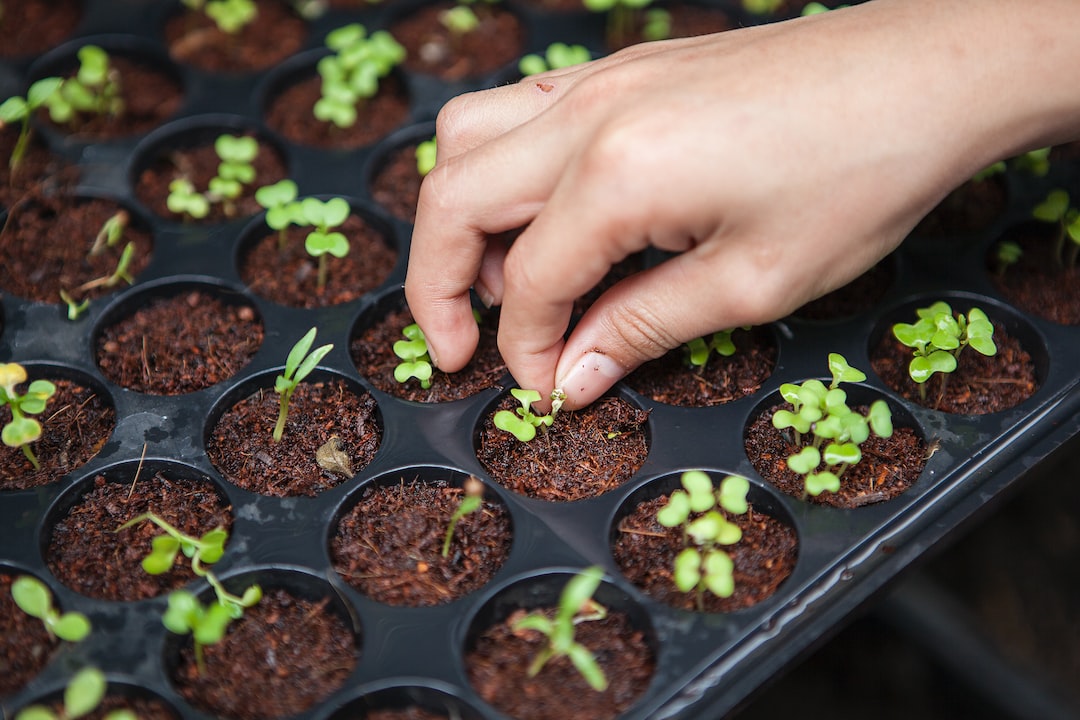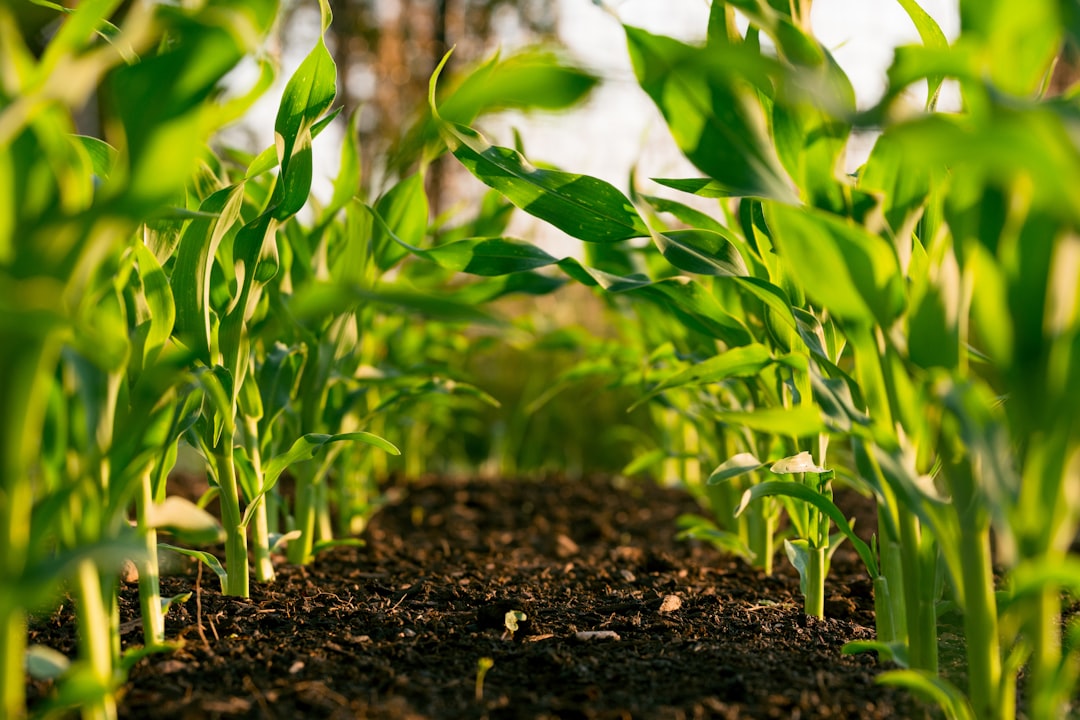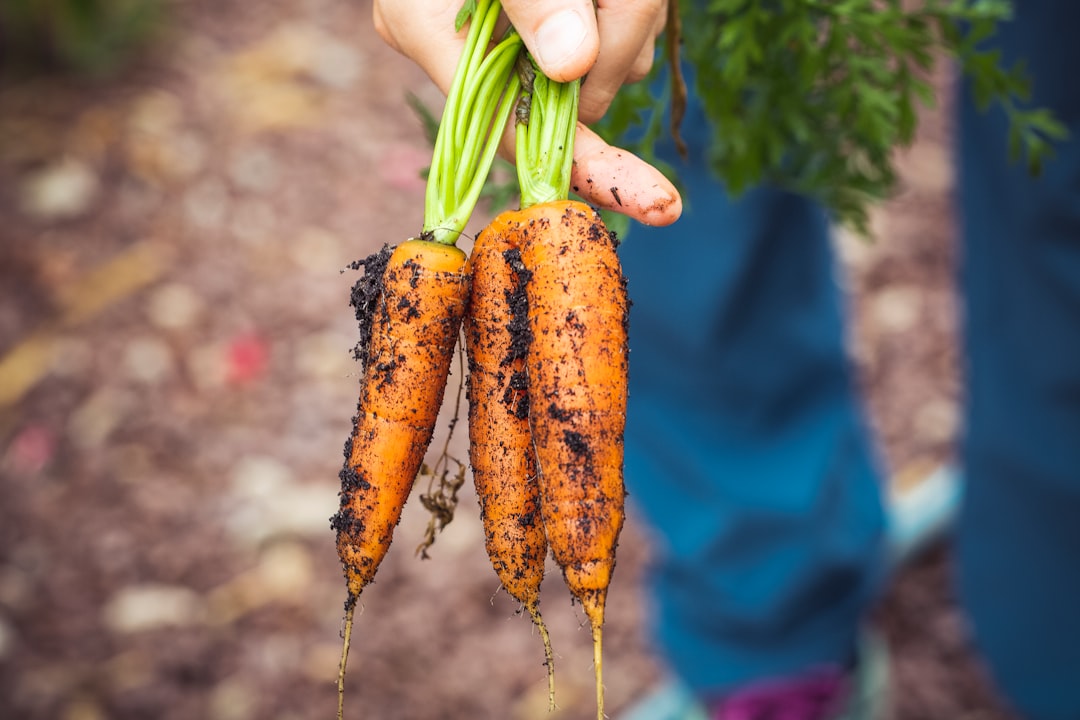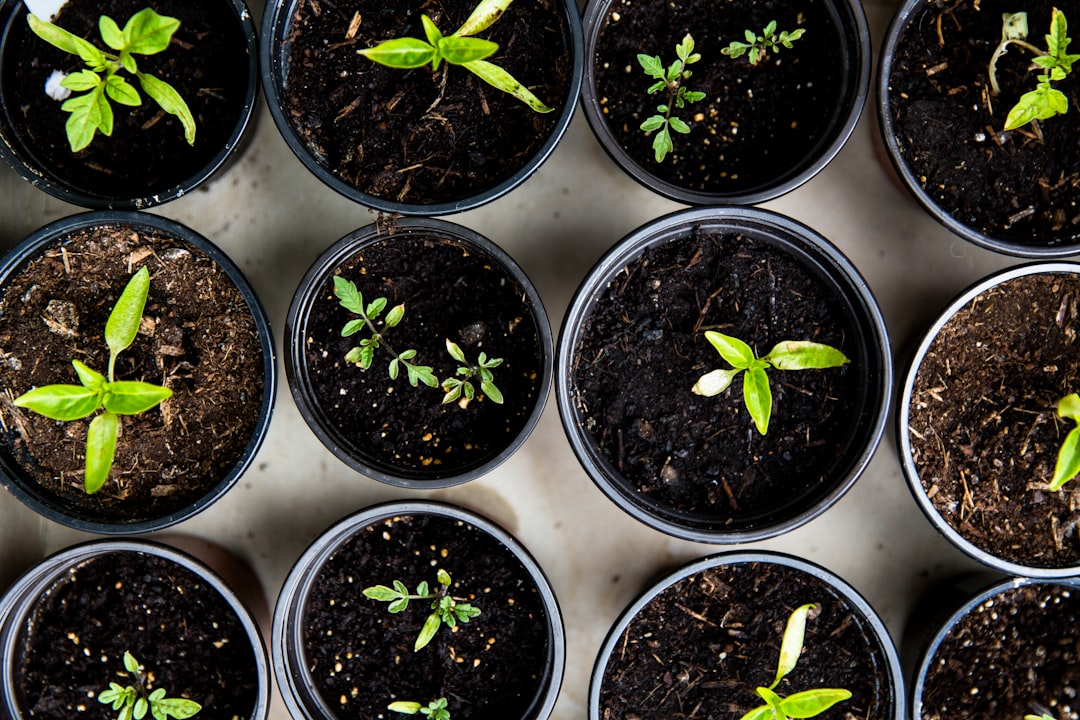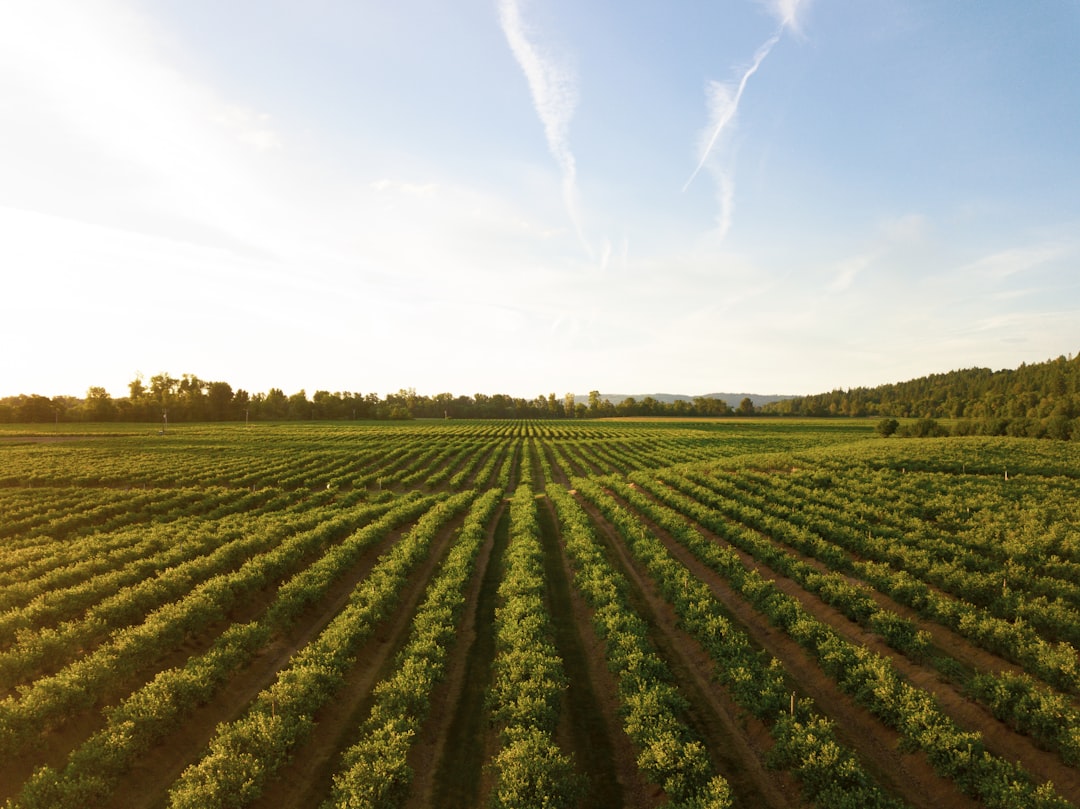Agriculture is one of the most important industries in the world. Not only does it provide food for millions of people, but it also plays a vital role in our economy. With a global population projected to reach 9.7 billion by 2050, there is an urgent need for sustainable agricultural practices to ensure that we can continue to feed the world’s population while protecting the environment. This is where Artificial Intelligence (AI) comes in. AI has the potential to revolutionize the way farmers work, enabling them to make better-informed decisions and ultimately leading to more efficient and sustainable farming practices. In this blog post, we will explore some of the ways in which AI is transforming agriculture, starting with the importance of sustainable farming.
The Importance of Sustainable Farming
Sustainable farming practices are those that maintain or improve soil health, conserve water and energy, reduce waste and greenhouse gas emissions, and contribute to the overall health of the environment. With climate change threatening our agricultural systems, sustainable farming initiatives are more critical than ever. Farmers are increasingly turning to sustainable practices to help reduce the environmental impact of agriculture while ensuring a consistent, reliable food supply.
The adoption of sustainable farming practices involves using low-impact methods to produce healthy crops with minimal environmental impact. For example, practices such as crop rotation, cover crops, and conservation tillage are effective at reducing soil erosion, increasing soil health, and reducing the carbon footprint of farming. The benefits of sustainable farming, both environmental and economic, are significant and will be critical in meeting the challenges that lie ahead.
Now that we’ve established the importance of sustainable farming, let’s take a closer look at how AI can help farmers make better-informed decisions and promote sustainable agriculture through smart sowing practices.
Smart Sowing: How AI is Changing Agriculture Practices
As the world population continues to grow, food production must also increase in order to meet the demand. However, the traditional agricultural practices are no longer sustainable for long term food production. Sustainable agriculture has become a necessity to protect the environment and ensure that future generations have access to healthy food.
This is where technology comes into play. Artificial intelligence (AI) in agriculture has been gaining popularity among farmers as it offers innovative and sustainable solutions to improve crop productivity and reduce the impact on the environment. One of the most promising areas is smart sowing.
Smart sowing is the practice of using AI algorithms to determine the optimal time, location, and amount of seeds to plant. By analyzing a variety of data sources, such as weather patterns, soil composition, and historical yields, AI can provide farmers with precise recommendations on seed selection, planting time, and density. This translates into more efficient use of resources and increased yields with less waste.
Precision farming is an essential aspect of smart sowing that uses technology to tailor farming practices to specific conditions of each plot. With the use of precision seeding and planting equipment, farmers can optimize the placement of seeds to maximize crop productivity. AI-driven robots can perform seed planting with high precision under variable environmental conditions, including extreme weather events. This ensures reliable crop production while reducing the risk of crop failure.
In addition to maximizing yield and resource utilization, smart sowing also has an impact on sustainable agriculture practices. By using AI algorithms to optimize crop management, farmers can minimize the impact on the environment by reducing the use of fertilizers and pesticides. With smart sowing, farmers can detect early signs of pest infestation and quickly take corrective measures to avoid the use of harmful chemicals. This promotes healthier crops and a healthier environment.
In conclusion, smart sowing is a promising area where AI can have a significant impact on sustainable agriculture practices. By providing data-driven recommendations on optimal planting conditions, farmers can increase yields, reduce waste, and minimize the use of harmful chemicals. The application of AI is an essential step forward in modernizing agriculture practices, ensuring a sustainable and sufficient food supply for the growing population.
Sustainable agriculture has become a necessity to protect the environment and ensure that future generations have access to healthy food.
Pest Management
Pest management is crucial to ensure sustainable and healthy farming practices. Traditional methods of pest detection and control have relied heavily on chemical pesticides, which can be harmful to the environment, wildlife, and even human health. However, with the advancements in Artificial Intelligence technology, farmers can now benefit from effective pest management without the need for the excessive use of pesticides.
AI-powered pest detection tools can identify and monitor pests in crops with ease and accuracy. These tools use machine learning algorithms to analyze crop images and detect any pest infestations. AI-powered pest control systems can also help farmers address pest problems before they reach critical levels by offering predictions and early warning systems. By identifying pests early on, farmers can take preventive measures to stop the spread of infestations and reduce crop damage and yield loss.
The benefits of AI in pest management extend beyond early detection and control. AI can also support sustainable practices by reducing the use of chemical pesticides. By accurately identifying and targeting specific pests, farmers can use precise and limited amounts of pesticides, reducing their negative environmental impact, and overall costs.
AI can also offer practical solutions to improve pest management in organic farming practices. In organic farming, the use of chemical pesticides is prohibited, making pest control particularly challenging. However, AI can provide organic farmers with an effective and sustainable solution. By using AI-powered pest detection tools and preventive measures, organic farmers can control pests, minimize the risk of crop damage, and improve overall yield.
Incorporating AI into pest management practices does not only benefit the environment and the farmers, but also the consumers. Reducing pesticide use can lead to healthier and safer produce, minimizing the risk of exposure to harmful chemicals.
In conclusion, AI-powered pest management is transforming pest control practices in agriculture. By offering early detection, accurate identification, and targeted control, AI empowers farmers to take proactive measures towards sustainable and healthy farming practices. By reducing the use of chemical pesticides and improving pest control, AI can also increase yields and improve food quality, leading to a more sustainable and secure food system.
By using AI-powered pest detection tools and preventive measures, organic farmers can control pests, minimize the risk of crop damage, and improve overall yield.
Soil Health
One of the most significant challenges facing agriculture is soil health. Soil health is the measure of the ability of soil to produce crops while maintaining its ecological functions. It includes the preservation of biological diversity and the capacity of the soil to absorb and retain nutrients and water.
Today, the threat to soil health is on the rise due to overuse of chemicals and excessive tillage, weather extremities, and land degradation. Soil degradation is a persistent issue caused by a range of factors like erosion, nutrient exhaustion, compaction, and chemical contamination. These factors are contributing to soil erosion rates, which are far higher than the rate at which soil forms.
The consequences of soil degradation are disastrous for the environment as well as farmers. Soil erosion leads to lower yields, water shortages, and deforestation. An estimated 33% of soil globally is degraded due to modern agricultural practices. Fortunately, AI can play a significant role in reversing soil degradation by helping farmers monitor, assess and manage soil health.
AI systems can analyze a range of soil health factors like nutrient content, pH level, and moisture levels. Farmers also can benefit from data-driven recommendations for sustainable farming practices, such as crop rotation or use of cover crops. This can help to improve soil health and reduce soil degradation rates.
Moreover, AI has the potential to optimize yields by offering recommendations on the number of crops that should be grown in a specific area, taking into account the land’s capability and soil health. This way, AI can positively impact the health of the soil, the environment, and farmers’ bottom line.
In conclusion, AI’s potential to assess soil health and prevent soil degradation is critical to sustainable agriculture. With the help of AI, farmers can adopt sustainable practices that optimize yields and protect the environment. Soil health should continue to be a priority for agricultural practices as it represents the foundation upon which sustainable agriculture rests.
This way, AI can positively impact the health of the soil, the environment, and farmers’ bottom line.
Resource Optimization:
Resource optimization is a crucial aspect of sustainable farming that cannot be overlooked in this day and age. Water and energy conservation are major concerns for farmers worldwide, and the good news is that AI solutions are stepping in to help optimize these finite resources.
Firstly, when it comes to optimizing water usage in farming, AI systems can help determine the precise amount of water needed in each area of the farm. With advanced sensing technology, the AI can detect factors such as soil moisture levels, temperature, humidity, and plant growth patterns to make calculated decisions on water allocation. With this information, farmers can accurately understand and manage irrigation, thus reducing water waste and excess usage.
Secondly, AI can assist in optimizing energy usage in farming by monitoring and analyzing energy consumption across different operations. AI-powered sensors can keep track of the farming equipment, analyzing its energy usage, and suggesting optimization strategies to reduce energy consumption or avoid peak usage periods, hence reducing energy wastage. Farmers can also use AI to optimize the orientation and spacing of solar panels, which can significantly reduce the carbon footprint of the farm.
When you consider that farming accounts for up to 70% of global water usage and roughly 10% of energy consumption, it’s evident how impactful and necessary the integration of AI is in optimizing these resources in agriculture. Using data to make informed decisions on resource allocations is essential, especially as global populations and consumption patterns continue to rise, placing more pressure on finite resources.
In conclusion, Resource optimization is a crucial factor in sustainable farming, and it’s excellent to see that AI solutions are stepping up to help farmers conserve our planet’s finite resources. By using AI to optimize water and energy usage, farmers can reduce their environmental footprint and contribute towards a more sustainable future for generations to come.
Water and energy conservation are major concerns for farmers worldwide, and the good news is that AI solutions are stepping in to help optimize these finite resources.
Conclusion: The Importance of Sustainable Farming Enhanced by AI
Sustainable farming is crucial for the survival of our planet and future generations. Through the use of smart technology, such as AI, farmers can achieve a higher level of precision and efficiency in their practices while reducing their impact on the environment.
AI technology can enhance every aspect of farming, from smart sowing to pest management, soil health, and resource optimization. Farmers can now make data-driven decisions that take into account a variety of factors such as weather conditions, soil health, and pest infestation.
The use of AI in agriculture has already resulted in significant improvements in yield optimization, reduced pesticide use, and decreased water and energy usage. As the technology continues to evolve, there is no doubt that it will further enhance sustainable agriculture practices.
In addition to preserving our planet, sustainable farming practices also have a positive impact on the profitability of farms. By minimizing resource waste and increasing efficiency, farmers can improve their bottom line.
In conclusion, the integration of AI technology into agriculture is a critical step forward in achieving sustainable farming practices. Farmers can use AI to minimize their environmental impact while maximizing their yield and profitability. It is the responsibility of everyone to support and promote sustainable farming practices to ensure a healthy and prosperous future for all.
As the technology continues to evolve, there is no doubt that it will further enhance sustainable agriculture practices.
Moving Towards A Sustainable Future
As we look towards the future of agriculture, it’s clear that implementing sustainable farming practices is no longer a mere option, but a necessity. We need to make sure that we are preserving our natural resources, reducing our carbon footprint, and protecting the health of our planet for generations to come. Fortunately, the integration of AI into modern farming practices is playing a vital role in helping us achieve these goals.
Through smart sowing, pest management, soil health monitoring, and resource optimization, AI is making it possible for farmers to reduce their impact on the environment while simultaneously improving their yield and profits. The ability to make informed decisions based on real-time data is a game-changer- one that ensures that farmers can make the most out of every acre of land they cultivate.
The use of precision farming and AI-based pest control techniques can help us drastically reduce the number of harmful chemicals used in farming- chemicals that not only damage the soil and the environment maar also threaten the health of the public. By minimizing pesticide use, we can promote healthier and more sustainable farming practices.
AI is also changing the way we approach resource allocation, making it possible to optimize our water and energy usage. Whether it’s through advanced soil health assessments or predictive analytics that dictate when to water crops, AI is making it possible for farmers to conserve resources and operate with maximum efficiency.
In conclusion, the integration of AI into modern agriculture practices is offering us a path towards a more sustainable future. By leveraging the latest technologies and farming techniques, we can provide ourselves with the food necessary to sustain our ever-growing population, all while minimizing our carbon footprint and protecting the environment. The road to a thriving future is rooted in sustainability- and AI is playing a vital role in helping us achieve it.
